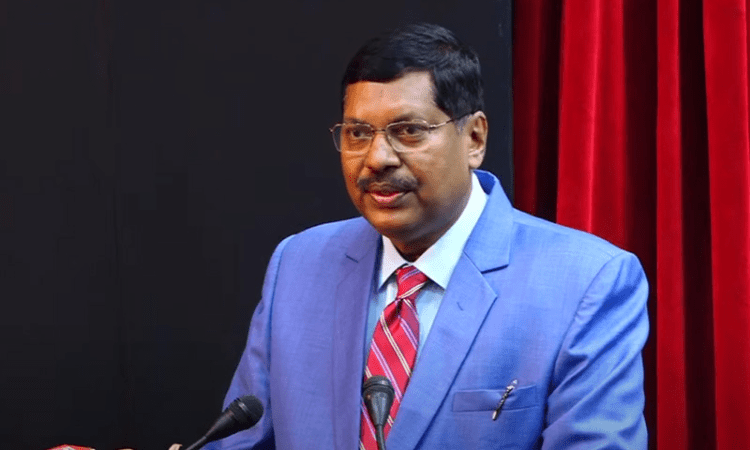Chief Justice of India B.R. Gavai, during the inaugural Sir Maurice Rault Memorial Lecture at the University of Mauritius, emphasized that democracy relies on ensuring the law serves justice instead of arbitrary power. He referred to his 2024 “bulldozer case” judgment, which opposed illegal demolitions, asserting that “India is governed by the Rule of Law, not the rule of the bulldozer.”
Critics, however, claim that the Supreme Court’s guidelines are being disregarded, with punitive demolitions continuing, particularly in BJP-ruled states.
In his address titled “Rule of Law in the Largest Democracy,” Chief Justice Gavai stated, “Legality alone does not confer fairness or justice. Just because something is legalized does not mean it is just.” He recalled his 2024 judgment on illegal demolitions, emphasizing that the executive cannot assume the roles of judge, jury, and executioner.
On November 13, 2024, a bench led by Justice Gavai and Justice K.V. Viswanathan invoked Article 142, which grants powers for “complete justice,” to establish nationwide guidelines prohibiting arbitrary demolitions. “The judgment sent a clear message that the Indian legal system is governed by the Rule of Law, not by the rule of the bulldozer,” he stated, underlining that constitutional safeguards prevent power from being used vindictively.
According to the guidelines, authorities must issue a show-cause notice at least 15 days in advance, detailing violations and providing time for response, while making copies available to the District Magistrate and a public portal.
Citing landmark rulings such as Kesavananda Bharati, Maneka Gandhi, Shayara Bano, Joseph Shine, and the 2024 decision nullifying the Electoral Bond Scheme, CJI Gavai asserted that these cases consistently demonstrate that arbitrariness is incompatible with equality and justice. He quoted Justice P.N. Bhagwati: “Equality and arbitrariness are sworn enemies; one belongs to the Rule of Law in a republic, the other to the whim and caprice of an absolute monarch.” He also referenced historical examples of systemic injustice, including slavery and colonial laws targeting indigenous groups.
Paying tribute to Sir Maurice Rault, Mauritius’s former Chief Justice, Gavai noted his warning against unchecked power and the supremacy of law over individual will. He recalled Rault’s assertion: “We did not abolish the divine right of kings to transfer divine rights to ministers. No official will be allowed to escape censure by saying: ‘for such is our good pleasure.’”
Reflecting on India’s constitutional history, CJI Gavai invoked Mahatma Gandhi’s moral principles and Dr. B.R. Ambedkar’s vision as guiding tenets for governance. He remarked that the Rule of Law transcends mere regulations; it constitutes an ethical framework aimed at ensuring equality and protecting human dignity in diverse societies.
He further indicated that India’s legal philosophy integrates both procedural and substantive aspects of the Rule of Law. CJI Gavai highlighted the judiciary’s role in expanding legal remedies, invoking directive principles, promoting public interest litigation, and establishing the basic-structure doctrine to safeguard marginalized communities.
While expressing optimism about India and Mauritius fortifying their friendship, he reiterated that law must serve justice and that justice must benefit the populace. The lecture was attended by dignitaries including Mauritius President Dharambeer Gokhool, Prime Minister Navinchandra Ramgoolam, Chief Justice Rehana Mungly Gulbul, and other officials.
In contrast, numerous activists, journalists, opposition leaders, and human rights organizations assert that the Supreme Court’s guidelines are being routinely violated, with ongoing demolitions in states like Assam, Uttar Pradesh, and Madhya Pradesh, often targeting marginalized groups, including Muslims.
“There is nothing preventing the Chief from taking suo motu cognizance of the UP Government’s illegal demolitions in Bareilly. Each bulldozer that destroys a home also undermines the authority of the Court. This situation represents not only lawlessness but also a direct challenge to the Court’s authority,” commented Supreme Court lawyer Anas Tanwir.
Journalist Aritry noted, “A reality check is needed for our Chief Justices. The bulldozer judgment has hardly deterred the Adityanath regime’s illegal demolitions, nor have any reparations been made.”
Lawyer Ashish Goel remarked, “The Indian Supreme Court’s clear message reaches Mauritius but fails to resonate in Uttar Pradesh.”
Arshad Ahmed, a journalist based in Assam, highlighted that “Over 15,000 families were displaced by eviction drives in recent months, with no adherence to the Supreme Court’s guidelines in these instances.”
Tags: India, rule of law, bulldozers, Chief Justice Gavai, demolitions
Hashtags: #India #runs #rule #law #bulldozers #CJI #Gavai #critics #call #reality #check #ongoing #demolitions










